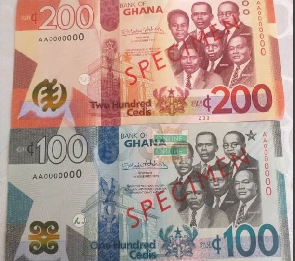A Senior Finance Lecturer at the University of Cape Coast (UCC) Business School, Seyram Kawor has stated that it is a basic economic principle that when more money is printed, inflation increases. Therefore, he reckons the printing of the new GH¢100 and GH¢200 notes, affected the prices of items partly and led to heightening inflation rates in the country. “We want to go cash lite society where people will not be using cash. Then all of a sudden, you’ve gone ahead to print new denominations of GH¢100 and GH¢200. Automatically certain things that may be bought at GH¢95 may go up to GH¢100. It is natural for these things to happen,” he explained according to myjoyonline.com reports. Ghana’s inflation has reached an all-time high of 37.2% as of September 2022 according to the Ghana Statistical Service. The country’s inflation has been attributed to the increasing rate of imports and the cedi’s depreciation. “Once you print currency, prices will go up”, he said, adding that “it’s a basic economic issue.” He stated that the current economic hardships are a result of the actions the government has taken in the past. “Once currencies are printed, we have prices going up. We have no justification for printing larger denominations. That is the price that we are paying for now,” he stressed. Watch the latest episode of BizTech below:
Business News of Saturday, 29 October 2022
Source: www.ghanaweb.com
Printing of new GH¢100, GH¢200 notes partly to be blamed for high inflation – Finance Lecturer
Entertainment
















